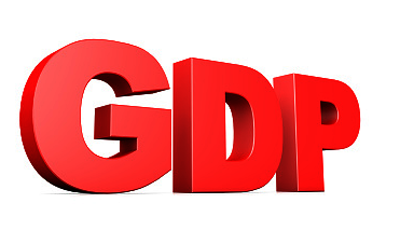 Gross domestic product (GDP) is a monetary measure of the market value of all final goods and services produced in a period (quarterly or yearly). Nominal GDP estimates are commonly used to determine the economic performance of a whole country or region, and to make international comparisons. Nominal GDP per capita does not, however, reflect differences in the cost of living and the inflation rates of the countries; therefore using a GDP PPP per capita basis is arguably more useful when comparing differences in living standards between nations.
Gross domestic product (GDP) is a monetary measure of the market value of all final goods and services produced in a period (quarterly or yearly). Nominal GDP estimates are commonly used to determine the economic performance of a whole country or region, and to make international comparisons. Nominal GDP per capita does not, however, reflect differences in the cost of living and the inflation rates of the countries; therefore using a GDP PPP per capita basis is arguably more useful when comparing differences in living standards between nations.
Definition :: The OECD defines GDP as “an aggregate measure of production equal to the sum of the gross values added of all resident and institutional units engaged in production (plus any taxes, and minus any subsidies, on products not included in the value of their outputs).” An IMF publication states that “GDP measures the monetary value of final goods and services – that is, those that are bought by the final user – produced in a country in a given period of time (say a quarter or a year).”
Total GDP can also be broken down into the relative contribution of each industry or sector of the economy.


